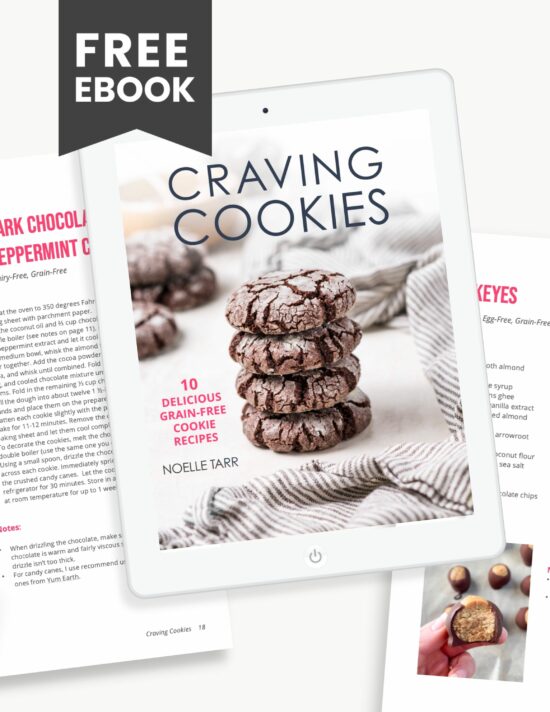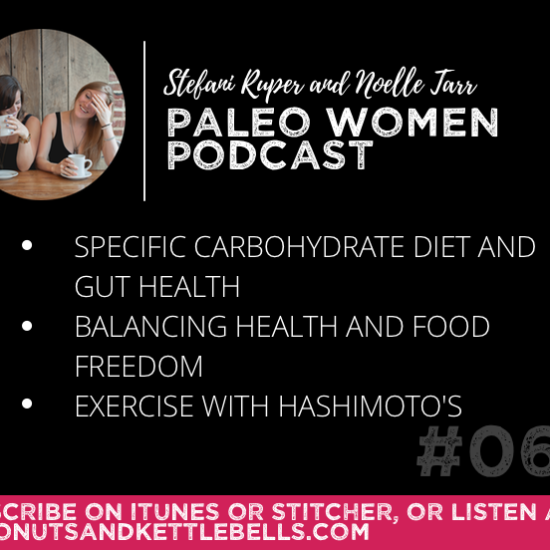This post may contain affiliate links. Please read our disclosure policy.

If you’ve ever fallen “off” the wagon before, you know there’s a lot more involved than simply having a few indulgences at friend’s party.
When people go outside of the rules they’re trying to follow or keep, it often results in feelings of inadequacy, disappointment, and shame.
These reactions are rooted in the belief that our interactions with food affect our own self-worth. Following the rules makes you a “good” person. And when those rules aren’t upheld, you’re a failure. And you suck. No wonder nobody likes you!
But, what if that’s actually false, and being on the wagon is at the root of your inability to remain consistent and enjoy the process of pursuing health?
Spoiler alert: Bingo!
Unpacking the Wagon
Let’s get real for a second. That wagon? Yeah, it doesn’t actually exist.
The wagon we all refer to is really just a strict set of rules we hope will give us more control of our health, body, or other people’s perception of us. When the rules are being followed, you’re in the wagon, and when a rule is broken—you’re out.
This mentality can be incredibly ineffective at creating long-term behavior changes because it turns the pursuit of health into an all-or-nothing occasion. Instead of enjoying a cookie, and going back to eating the foods that makes you feel your best the next day, breaking a rule results in working your way through an entire tub of cookie dough in a matter of hours.
Being “on” the wagon can also impose too many behavior changes at once, which creates an overabundance of stress—especially when other life stress is thrown into the mix.
Because stress and willpower are biologically incompatible, when a change, or a combination of changes are too stressful, they’re eventually abandoned for more familiar processes.
But, here’s where the wheels really start to fall off.
The wagon mentality initiates a cycle. Falling “off” the wagon results in guilt, and that guilt often us straight into the arms of punishing behaviors like more restriction and more rules, which becomes our new “wagon.” Each time perfection isn’t maintained, it results in defeat, self-criticism, and desperation, and the only way to rectify these feelings is to get back on the wagon, which starts the process over again.
This never-ending cycle is incredibly taxing physically, mentally, and emotionally, and can drain life’s experiencing of all enjoyment.
Stopping the Cycle
While it may seem like going off plan is the catalyst that creates all the problems, it’s actually the guilt that keeps the cycle spinning.
Guilt occurs when we have the mindset that there are “good” and “bad” behaviors around food and fitness, and our ability to uphold certain behaviors affects our own morality and worth.
This mindset is not only based on false assumptions, it’s also a big reason why people start to feel worse about themselves—their body, capabilities, or value—when pursuing health. That, and an industry that likes to make money off of you believing there is something wrong with you.
Stopping the cycle starts with understanding that food is not a moral compass. While you may find certain foods work best for you, food is not inherently “good” or “bad,” and your self-worth as a human being has absolutely nothing to do with your ability to eat a specific way, or do a workout as prescribed.
Yes of course, there are foods that are more nourishing for your body than others. But this does not mean you have done something wrong, or need to be punished for eating a food.
Giving food morality means giving the power to the food. And when food has the power, interactions with food are accompanied by fear, anxiety, and judgement, which makes it virtually impossible to have any sort of balance or consistency when pursuing health.
How to Stop Falling “Off” the Wagon
If you find yourself struggling to stay on the wagon, there’s a simple solution that will solve the problem once and for all.
Get out of damn wagon.
No, I am not suggesting you throw in the towel on pursuing health.
Instead, stop seeing health as a predefined road that requires perfection.
Getting out of the wagon means understanding that the pursuit of health is a journey. There is no “on” or “off”—there is life, and our experiences help us learn what is going to serve us best in the long run.
This allows us to nourish our body throughout all seasons of life without having to “muster up” the motivation to start over, or wait until we have it together.
It also recognizes that health is the result of a number of different factors, to include our mental, emotional, and social well-being. It’s is not just about what we eat, or our ability to eat perfectly according to plan.
Ditching the wagon takes self-imposed stress out of the equation, and allows us to live with more flexibility and mindfulness as we pursue becoming more capable, and experiencing all that life has to offer.
This does not mean that guidelines, or choosing to abstain from something that is not serving you is somehow wrong or ineffective. Not being on the wagon gives you the freedom to do exactly that—make choices that are right for your body—without fear or judgement, or the obsession that often occurs when we categorize a food as “bad” or perceive we “can’t” have something.
Understanding that you don’t need “do” health and fitness perfectly to have a long and healthy life allows you to enjoy the process, and focus energy towards living to the fullest right now instead of waiting until the wagon comes back around.
There is no such thing as where you “should” be. There is where you are, and where you’re going. So, let’s leave that wagon to the Oregon Trail, cause frankly—it’s totally cramping your style.
There is no such thing as where you 'should' be. There is where you are and where you're going.




Jenny Bell says
HI Noelle. I really appreciate your writing this piece. Not a day goes by that I don’t think “why can’t I just do it, without the all or nothing feeling”. Its very frustrating. I attempted a low carb high fat diet for over a year, and this definitely pushed me into this mentality even worse, because the minute you go “off the wagon”, you gain a large amount of weight.
I am attempting to change my mindset, and your article will be something I read often to remember my goal. Thank you for all that you do.
Noelle says
You are so welcome, Jenny! And thanks for letting me know. Have patience with yourself as you shift your mindset. It won’t happen overnight, but you’ll be amazing at what you can do once you see everything through a difference lens. 🙂
Hannah says
Hi Noelle! Thank you so much for your incredible work. I love the podcast, articles, and social media posts, and I also really like your new website layout!! You are such an inspiration to me, and I look up to you as I embark on this health blogging journey myself. Thank you for all that you do for this community!
Noelle says
You are so welcome! Thanks for your love, Hannah!
D says
Hi Noelle, this is so what I needed to read right now. It’s sad how obsessive we get about these things. I just experienced the whole “falling off the wagon” for two weeks and was just congratulating myself for being back on it. But clearly it’s not the right way of thinking about it.
I’ve noticed that PMS is a huge huuuge factor when it comes to “falling off the wagon,” and I have finally started to come to terms with the fact that that is part of life and embracing it as it comes, rather than guilting myself and feeling powerless (esp when it comes to food…).
I don’t know if this is something you experience, but if you have any advice I would greatly appreciate it (am i’m sure many others would too!)
Noelle says
Hi Daisy! Totally agree. Hormonal changes can affect this a lot. It simply takes being proactive with it, and recognizing when that “time” does come. Also, think you’d love listening to The Paleo Women Podcast! We talk about mindset a lot!